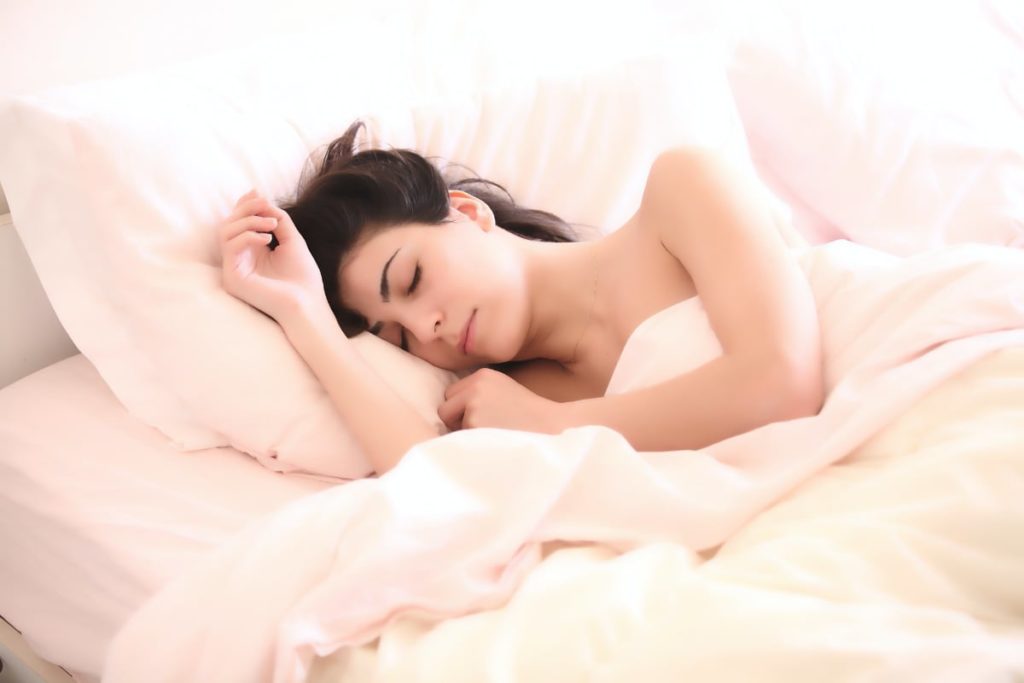
Acupuncture is useful to help relieve both the side effects and causes of poor sleep. It is beneficial to:
- Calm your mind to allow better sleep and balances your system to better deal with change.
- Improve immune function and energy levels that result as an effect of poor sleep
- Relieve pain which may be waking you at night
- Help with the symptoms of caffeine or nicotine withdrawal, which you may be removing from your lifestyle in order to sleep better.
- Relieve stress which leads to and results from poor sleep
- Treat TMJD and teeth grinding which may be disrupting your sleep
- Treat other underlying causes of insomnia, such as anxiety, depression, heartburn, and other conditions that lead to poor sleep
The Importance of Sleep
Many people take sleep for granted, or consider it to be a luxury. However, good sleep habits are as important for our health as diet and exercise. With proper amounts of sleep our memory, immune function, metabolism, pain levels and appearance are all improved. Good sleep is important for us to experience optimal productivity and creativity, and improves our mental and physical performance.
When our sleep is poor we are tired, irritable, and suffer from headaches – and unfortunately, often unable to realize when our performance is affected. When our sleep suffers so does our mood and stress levels, and we have a higher risk of being involved in accidents. People who have prolonged amounts of poor sleep have an increased risk of obesity, heart disease, stroke, diabetes and hypertension. If we want to live a long healthy life, we must do our best to maintain good sleep habits.
If you are sleeping well:
- You fall asleep within half an hour of going to bed
- You can fall asleep quickly after a sleep interruption
- You wake up every morning at around the same time
- You wake up refreshed and alert
- You do not need an alarm clock to wake up
Poor sleep habits, depression, sleep apnea, pain, restless leg syndrome, heartburn, medications, stress, and anxiety, as well as other health conditions can cause us to have problems sleeping. The amount of sleep you need per night may vary. The familiar recommendation is to get approximately 8 hours of sleep a night, but when you are stressed or sick you may need more, or if you are energized and very well rested you may need less. If you currently get much less sleep than your ideal you should add more sleep incrementally, 15 minutes at a time until you at the amount of sleep that works for you. Also, if it takes you half an hour to fall asleep you need to make room for that in your sleep schedule.
How you can get a better sleep:
There are many habits you can cultivate to help you get a better sleep:
- Create a soothing sleep environment by keeping the room cool and dark, by removing all electronics, and by keeping clutter out of the room. A good mattress and pillow is important.
- Nap only when it is necessary.
- Avoid caffeine after midday – it is a stimulant which makes it harder to sleep. It also increases energy, leading us to believe we need less sleep than we do.
- Avoid the temptation to stay up late. Set yourself a bedtime and prioritize sleep.
- Avoid screen time before bed.
- Learn a relaxation technique to use when going to sleep.
- Follow a sleep routine that relaxes you and prepares you for sleep.
- A warm bath relaxes you and raises your body temperature. The subsequent drop in temperature after your bath triggers your body to prepare for sleep. The addition of chamomile or lavender essential oils is also helpful.
- Keep your house darker an hour before you go to bed to trigger melatonin production.
- Expose yourself to lots of natural daylight during the daytime.
- If after a dream you are disturbed and can’t fall asleep, write it down. This often allows your mind to let go of it so you can go back to sleep.
- Exercise improves sleep, but avoid exercise within 3 hours of sleeping.
- If you know that you are going to lose sleep a few days in advance, be proactive and sleep a little extra for the days preceding the event.
- Avoid smoking, nicotine is a stimulant.
Foods and drink for better sleep
For a small evening snack include foods containing:
- Tryptophan – dairy, nuts, seeds, bananas, honey, eggs, chicken, turkey
- Lactucarium – has a sedative effect, found in lettuce
- Magnesium – helps with sleep, found in dark leafy greens, seafood, nuts, seeds, peas, beans, potatoes, and oats. Your magnesium levels are likely low if you eat a lot of sugary foods or are stressed.
Calcium, B vitamins and iron levels are also important for a good sleep.
Chamomile and lemon balm are good choices for teas that promote sleep but cut fluids in general by 8 pm so you have a less interrupted sleep due to waking to use the bathroom.
In the evening, avoid:
- Tyramine which is found in nightshade vegetables (potatoes, tomatoes, zucchini, eggplant) and fermented foods (such as beer, aged cheeses, salami and pepperoni)
- Caffeine and hidden caffeine (for example, in chocolate)
- Protein-rich and high-fat meals that are harder to digest
- Alcohol – stop 4-6 hours before bedtime and drink plenty of water if you are drinking alcohol
- Heavy, spicy foods
Enjoying a better sleep has many benefits to your life and longevity. Consider acupuncture to help you improve your sleep and to maintain better sleeping habits.
